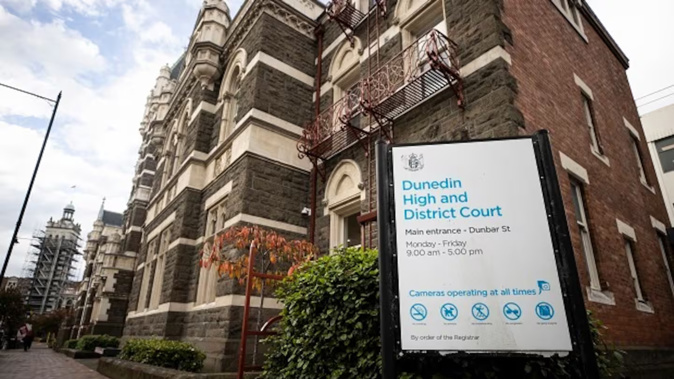
A doctor has told a jury there is “absolutely no evidence” a baby’s bones were abnormal, rejecting defence claims of rickets and insisting the fractures were caused by force.
The trial of a high-profile sportsman accused of causing 13 rib fractures to an infant continued at the Dunedin District Court on Wednesday.
The Crown alleges the injuries were caused by force, while the defence argues underlying bone fragility and deficiency may be responsible.
The court has heard from the infant’s mother, and friends and family of the defendant. All have vehemently argued that the infant’s injuries were not caused by the defendant, who is charged with injuring with reckless disregard and assault.
The trial sharpened into a battle of medical opinions, with defence lawyer Anne Stevens KC challenging a Crown witness about whether the infant’s injuries related to a bone disorder.
Professor Ben Wheeler, a paediatric endocrinologist and paediatrician working for the University of Otago and the Southern District Health Board, told the court his review of the infant showed “nothing that supports these abnormal bones … [the infant’s] bones appear to be normal for [its] age”.
Wheeler outlined in his statements that the infant’s fractures showed clear signs of healing, indicating they were more recent rather than congenital.
He told the court he had not been physically involved with the infant but had read hospital notes and imaging after its hospital admission.
He said a repeat X-ray of the infant two weeks after their initial admission showed signs of rib fractures healing, suggesting a more recent issue.
He told the court extensive investigations, including genetic testing for bone disorders, found no abnormalities.
While a mild vitamin D deficiency was identified, he stressed this was common in infants in Otago and Southland and did not contribute to fracture risk.
He told the court that without some form of supplementation, more than 50% of babies born in Dunedin would have vitamin D deficiency.
He explained that rickets was the severe end of vitamin D deficiency and can rarely cause fractures, typically only affecting long bones in mobile children, resulting from a fall or such impact.
“They don’t tend to break ribs. If you had rickets, which we don’t have here, a rib fracture would be very unusual. And multiple rib fractures would be extremely, extremely unusual.”
He said if a severe bone disorder was present, further fractures would be expected with normal handling, and “if fractures occurred at birth, [the infant] would have had signs of fractures healing”.
During cross-examination by Stevens, Wheeler again rejected the suggestion that vitamin D deficiency or rickets explained the injuries.
Stevens pressed him on whether rickets could be diagnosed in an infant, putting to Wheeler that it was possible rickets could not be diagnosed in an infant of such an age.
“No, you absolutely can,” Wheeler said.
“We’ve looked at that extensively and [the infant] did not have rickets.”
Stevens put to Wheeler the views of overseas radiologist Dr Julie Mack, who is expected to give evidence later in the trial, and suggested Mack had identified rib changes consistent with rickets.
Wheeler refused to endorse that view, saying he would defer to local radiologists rather than the defence’s overseas expert.
“I’d be concerned about Dr Mack... I would want one of our local radiologists to review that, we wouldn’t go overseas for that opinion.”
“Dr Mack makes an assumption that because there are so many fractures, and no cause is noted, that this must be due to fragility. In my opinion that is a massive assumption,” he said.
“The pattern and the number of fractures strongly suggested a non-accidental injury with substantial force in my experience,” he said.
The trial continues.
Ben Tomsett is a multimedia journalist based in Dunedin. He joined the Herald in 2023.
Take your Radio, Podcasts and Music with you









